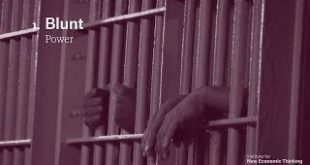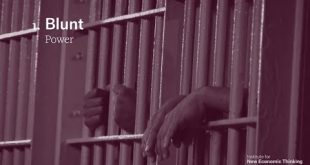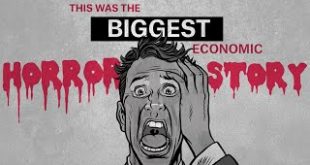Following Robert Skidelsky’s lecture “Economic History” he leads a discussion with students. INET sincerely thanks the Julis-Rabinowitz Family for their generous support, who named this series to honor the spirit of a great educator and economic thinker, Uwe Reinhardt. For nearly 50 years, the late Uwe Reinhardt was a beloved economist and professor at Princeton University. Known best for helping to shape critical discourse around healthcare markets, his biting wit and...
Read More »Economics and Power | How & How NOT to Do Economics with Robert Skidelsky
Where—if anywhere—is power is located in economic life? How economists do deal with it? And to what extent is economics itself part of the power structure? In this eighth lecture in INET’s “How and How Not to Do Economics,” Robert Skidelsky looks at economics’ relationship with power. INET sincerely thanks the Julis-Rabinowitz Family for their generous support, who named this series to honor the spirit of a great educator and economic thinker, Uwe...
Read More »[DISCUSSION] Unlimited Wants, Limited Resources | How & How NOT to Do Economics | Robert Skidelsky
Following Robert Skidelsky’s lecture “Unlimited Wants, Limited Resources,” he leads a discussion with students. INET sincerely thanks the Julis-Rabinowitz Family for their generous support, who named this series to honor the spirit of a great educator and economic thinker, Uwe Reinhardt. For nearly 50 years, the late Uwe Reinhardt was a beloved economist and professor at Princeton University. Known best for helping to shape critical discourse around healthcare markets,...
Read More »Unlimited Wants, Limited Resources | How & How NOT to Do Economics with Robert Skidelsky
Lionel Robbins defined economics as: “the science which studies behaviour as a relationship between unlimited wants and limited resources which have alternative uses.” How do we understand this tension between unlimited wants and limited resources? That’s what Robert Skidelsky examines in this second lecture of his INET series, “How and How Not to do Economics.” INET sincerely thanks the Julis-Rabinowitz Family for their generous support, who named this...
Read More »[DISCUSSION] Psychology and Economics | How & How NOT to Do Economics | Robert Skidelsky
Following Robert Skidelsky’s lecture “Psychology and Economics,” he leads a discussion with students. INET sincerely thanks the Julis-Rabinowitz Family for their generous support, who named this series to honor the spirit of a great educator and economic thinker, Uwe Reinhardt. For nearly 50 years, the late Uwe Reinhardt was a beloved economist and professor at Princeton University. Known best for helping to shape critical discourse around healthcare markets, his biting...
Read More »[DISCUSSION] Economic History | How & How NOT to Do Economics | Robert Skidelsky
Following Robert Skidelsky’s lecture “Economic History” he leads a discussion with students. INET sincerely thanks the Julis-Rabinowitz Family for their generous support, who named this series to honor the spirit of a great educator and economic thinker, Uwe Reinhardt. For nearly 50 years, the late Uwe Reinhardt was a beloved economist and professor at Princeton University. Known best for helping to shape critical discourse around healthcare markets, his biting wit and intellect...
Read More »[DISCUSSION] Unlimited Wants, Limited Resources | How & How NOT to Do Economics | Robert Skidelsky
Following Robert Skidelsky’s lecture “Unlimited Wants, Limited Resources,” he leads a discussion with students. INET sincerely thanks the Julis-Rabinowitz Family for their generous support, who named this series to honor the spirit of a great educator and economic thinker, Uwe Reinhardt. For nearly 50 years, the late Uwe Reinhardt was a beloved economist and professor at Princeton University. Known best for helping to shape critical discourse around healthcare markets, his biting wit and...
Read More »Economics and Power | How & How NOT to Do Economics with Robert Skidelsky
Where—if anywhere—is power is located in economic life? How economists do deal with it? And to what extent is economics itself part of the power structure? In this eighth lecture in INET’s “How and How Not to Do Economics,” Robert Skidelsky looks at economics’ relationship with power. INET sincerely thanks the Julis-Rabinowitz Family for their generous support, who named this series to honor the spirit of a great educator and economic thinker, Uwe Reinhardt. For nearly 50 years, the...
Read More »Letter: The UK’s failing economic model demands such bold ideas
Below is the text of a letter to the editor of the Financial Times, signed by Lord Skidelsky alongside 81 other signatories, and published on 6th September 2019. Your series of articles exploring the Labour party’s economic agenda fails to appreciate the severity of the UK’s current economic condition, and reproduces a number of misconceptions. There is growing political consensus that the UK’s economic model is failing. The economy has been performing badly for more than a decade....
Read More »Is History Important? [Robert Skidelsky]
If we’re headed for a recession, blame the economists who flunked history class. History has long been downplayed by economists, even though it holds the keys to answering some of the most important questions today. Why did the stock market crash in 1929? Should the 2008 bank bailout been handled differently? Is there any way to stop this endless cycle of booms and busts? Economic historian Robert Skidelsky explains why the past is vital to making sense of the present.
Read More » Robert Skidelsky
Robert Skidelsky









